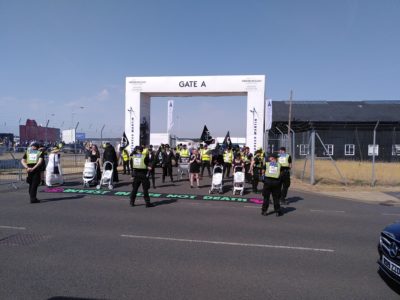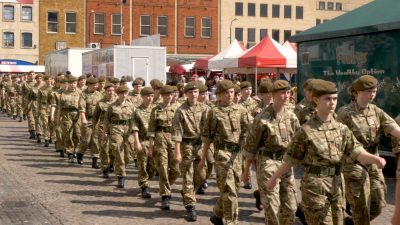Arms industry spends millions to promote brands in schools
The Observer
Arms manufacturers are spending millions of pounds a year promoting their brands in Britain’s schools, the Observer has learned.
The companies, which between them have sold tens of billions of pounds of weapons to overseas governments, including those with poor human rights records, sponsor a series of school events at which their brands are prominently on display. In addition, they issue teaching materials for use in classrooms that promote the defence sector, sponsor competitions and award prizes.
One company even deployed a high-profile children’s television presenter to promote its activities in a school, while another developed a missile simulator for pupils to “play with”. Critics accuse the companies of trying to “normalise their appalling business” in the minds of the young, but the body representing the defence sector says such an approach is vital if the UK is to produce a future generation of engineers.
“When these companies are promoting themselves to children they are not talking about the deadly impact their weapons are having,” said Andrew Smith of Campaign Against Arms Trade. “Many of these companies have profited from war and fuelled atrocities around the world. Schools are vital to our society and should never be used as commercial vehicles for arms companies. It is time for arms companies to be kicked out of the classroom.”
BAE Systems, Europe’s largest arms company whose fighter jets are currently being used by Saudi forces in Yemen – where there have been large numbers of strikes on civilian buildings – visited 420 schools across the UK last year and prepared lesson plans for children as young as seven.
The company promotes its roadshows on Twitter and other social media. One event included an appearance by CBeebies television presenter Maddie Moate who, according to BAE, was there to “join in the fun and take a few ‘selfies’ for her own personal collection”.
In an online presentation, BAE states that it spends tens of millions of pounds a year on reaching pupils as young as four. Among worksheets issued to schoolchildren were some encouraging them to think about how BAE’s special camouflage system could have “significant advantages on the battlefield” by allowing tanks to become invisible to hostile thermal imaging systems.
Another sheet encourages pupils to look at the company’s past initiatives to find out “more about how shapes of aeroplanes, ships, submarines and tanks have changed over the years”
See more: military in schools/colleges, STEM, arms trade, education










